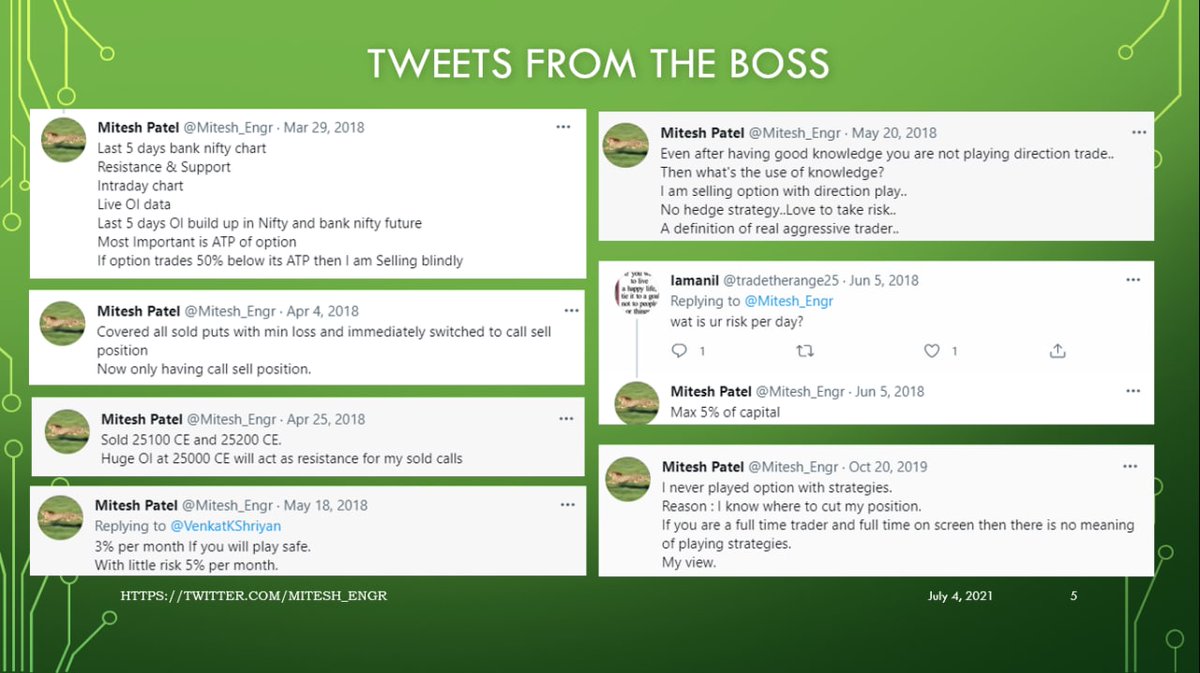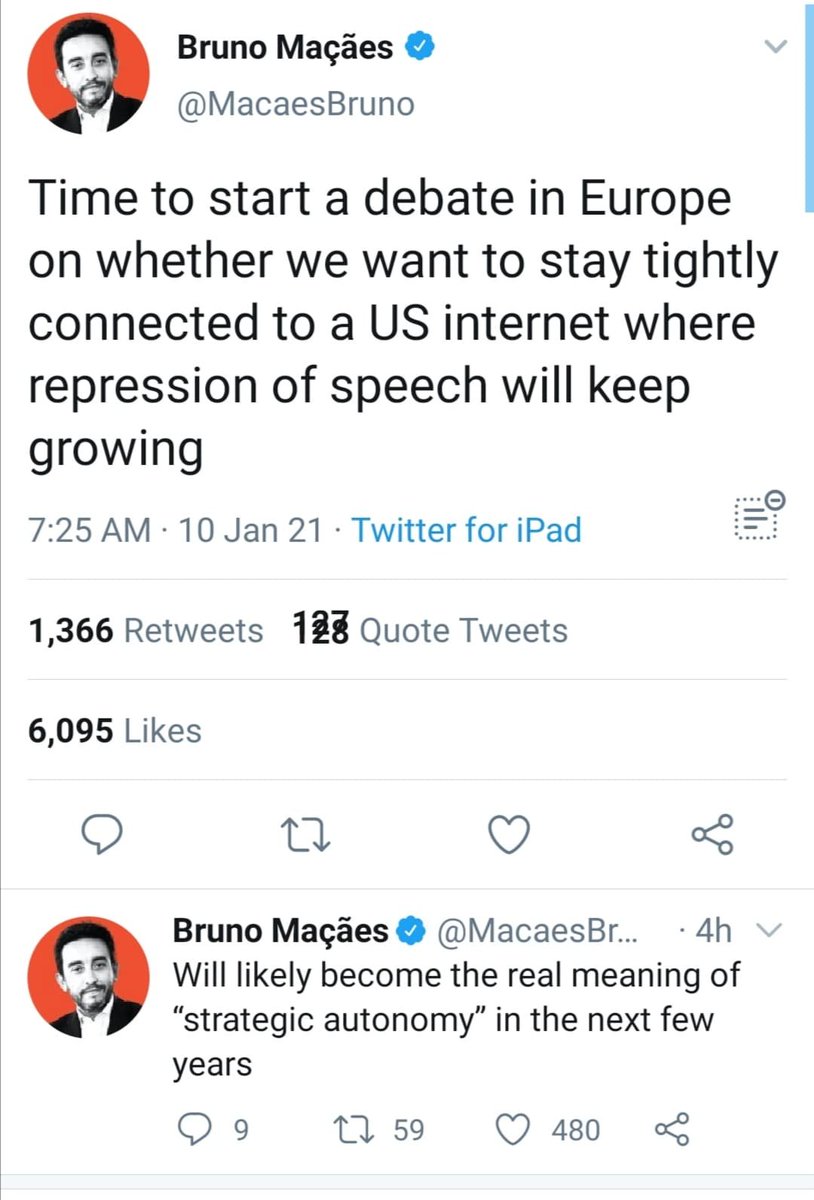
1/ US tech's ban of Trump gives China a once-in-a-decade opportunity to reset the global tech ecosystem in its favor. China should pay its tech firms to package and release an open source social media app, open source app store and mobile stack, and an open source cloud stack

This is all much bigger than US politics.
— balajis.com (@balajis) January 9, 2021
It is a matter of national security for India, Israel, and every other country to maintain a sovereign communications channel for their leaders to reach their people directly.
The world cannot be ruled by American corporations. https://t.co/2dDtcOICQ8
How would countries build sovereign apps?
— balajis.com (@balajis) January 9, 2021
1) Clone the features of WeChat, FB, or Twitter, which is much easier than developing from scratch
2) Encourage or requirr citizens to sign up, which is much easier if you\u2019re a state
That\u2019s product and distribution respectively.
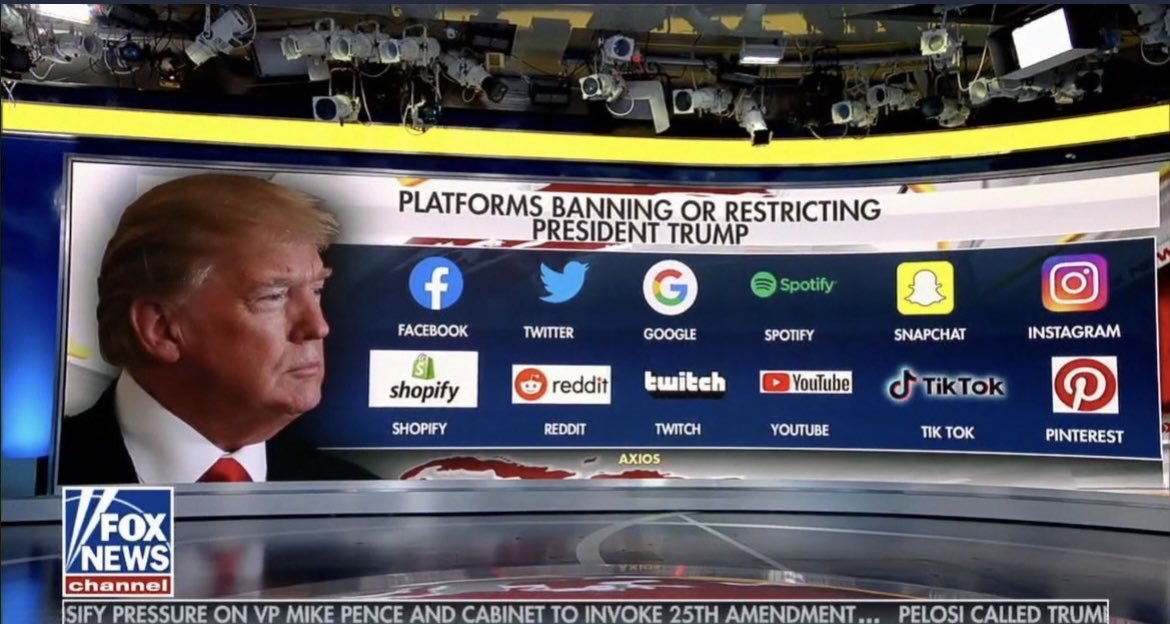
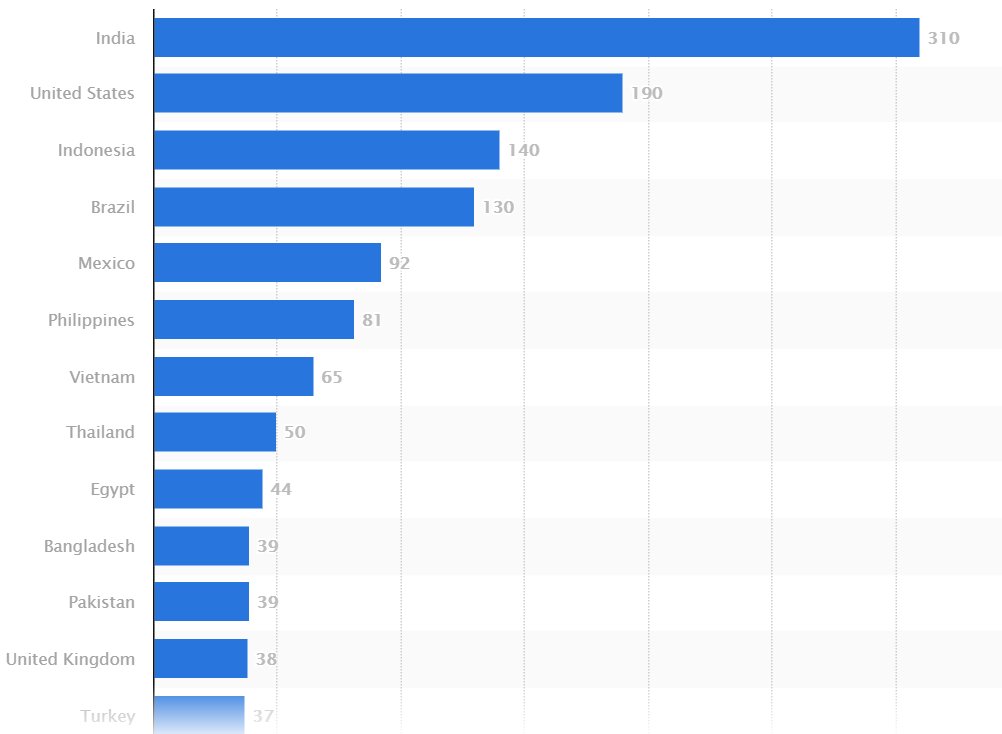
More from Trump
To those who want to actually help Claudia Conway after her mom (Kellyanne Conway, Trump’s former aide) posted her underage daughter’s nudes to Fleets, fill out a report on the NCMEC CyberTipline.
CPS refused to help her.
#HelpClaudia

Kellyanne Conway has a well-documented history of verbally abusing, gaslighting, and threatening her daughter. It gets worse when highly public things go viral (such as exposing the truth about Trump and Conway catching COVID-19 last October). Kellyanne coerces false statements.
Insider did a thorough chronological background of the history of exposing her parents abuse and control of her here: https://t.co/ncjaEyLOSC
We all know that “statement” last year was coerced. She talks constantly about being abused by them.

Personally? I suspect Kellyanne is a narcissist. From my own experience being sexually and emotionally abused by a narcissist, they are obsessed with controlling the narrative (coerced typed statement), discrediting their victim (posting her nudes) & gaslighting
If you haven’t experienced gaslighting or aren’t familiar with it, it’s when someone causing you harm (physical, emotional, sexual, financial, etc) twists the facts and asserts that reality is just you being delusional and you don’t actually understand what happened.
CPS refused to help her.
#HelpClaudia

Kellyanne Conway has a well-documented history of verbally abusing, gaslighting, and threatening her daughter. It gets worse when highly public things go viral (such as exposing the truth about Trump and Conway catching COVID-19 last October). Kellyanne coerces false statements.
Insider did a thorough chronological background of the history of exposing her parents abuse and control of her here: https://t.co/ncjaEyLOSC
We all know that “statement” last year was coerced. She talks constantly about being abused by them.

Personally? I suspect Kellyanne is a narcissist. From my own experience being sexually and emotionally abused by a narcissist, they are obsessed with controlling the narrative (coerced typed statement), discrediting their victim (posting her nudes) & gaslighting
If you haven’t experienced gaslighting or aren’t familiar with it, it’s when someone causing you harm (physical, emotional, sexual, financial, etc) twists the facts and asserts that reality is just you being delusional and you don’t actually understand what happened.
I missed that DOJ has posted the individual certificates listing what offenses Trump pardoned for each person listed in his January 19 master clemency warrant, which had names but didn't spell out the covered crimes. https://t.co/oL44VoCVbr
Here's Steve Bannon's, for example.
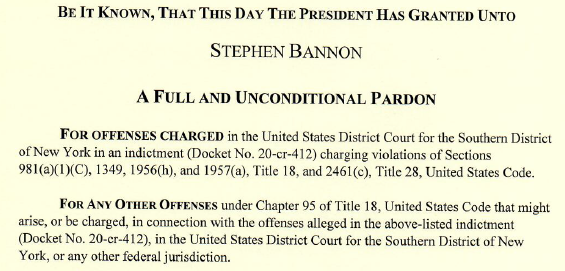
Here's Elliot Broidy, a Trump fund-raiser who admitted to a role in a covert campaign to influence the administration on behalf of Chinese and Malaysian interests.
https://t.co/tvpHORLrps
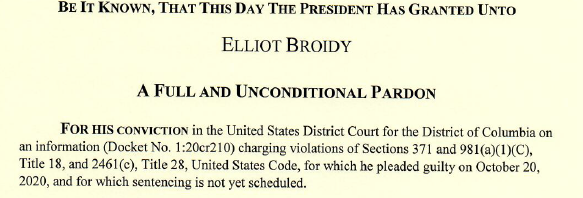
Here's Ken Kurson, a former Giuliani speechwriter and former editor of a newspaper Jared Kushner owned, who had been charged with cyberstalking
https://t.co/HxcexSK4Sc
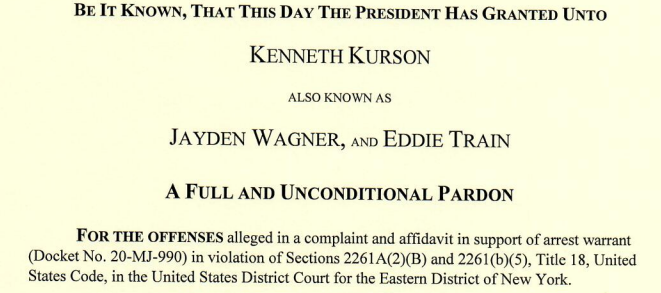
Here's Aviem Sella, an Israeli who had been a fugitive from 1987 esionage and subversive activities charges related to recruiting a spy against the United States, Jonathan Pollard. (He was never extradited and pardoning him was a favor toNetanyahu.)
https://t.co/neHjN57ok3
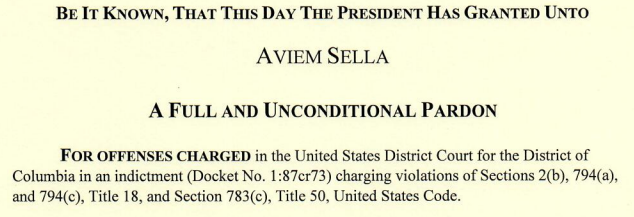
Here's Dwayne Michael Carter a/k/a Lil Wayne, who had pleaded guilty to firearm offenses
https://t.co/yixm1fTR2b
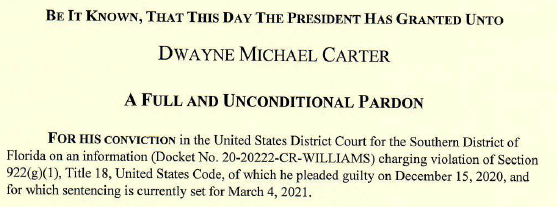
Here's Steve Bannon's, for example.

Here's Elliot Broidy, a Trump fund-raiser who admitted to a role in a covert campaign to influence the administration on behalf of Chinese and Malaysian interests.
https://t.co/tvpHORLrps

Here's Ken Kurson, a former Giuliani speechwriter and former editor of a newspaper Jared Kushner owned, who had been charged with cyberstalking
https://t.co/HxcexSK4Sc

Here's Aviem Sella, an Israeli who had been a fugitive from 1987 esionage and subversive activities charges related to recruiting a spy against the United States, Jonathan Pollard. (He was never extradited and pardoning him was a favor toNetanyahu.)
https://t.co/neHjN57ok3

Here's Dwayne Michael Carter a/k/a Lil Wayne, who had pleaded guilty to firearm offenses
https://t.co/yixm1fTR2b

























